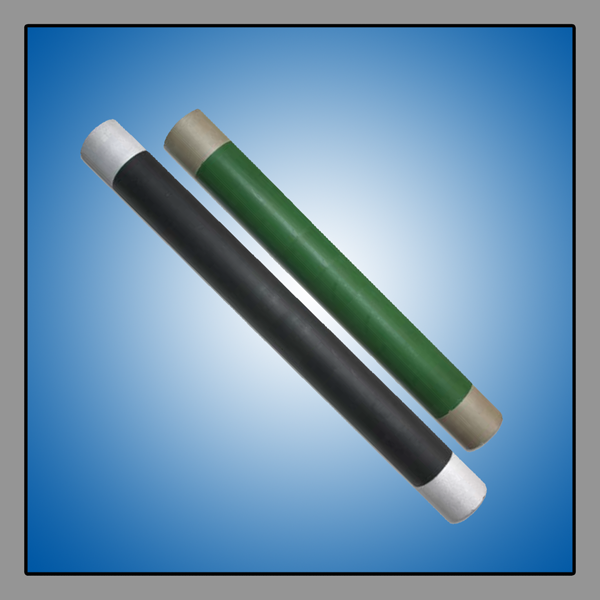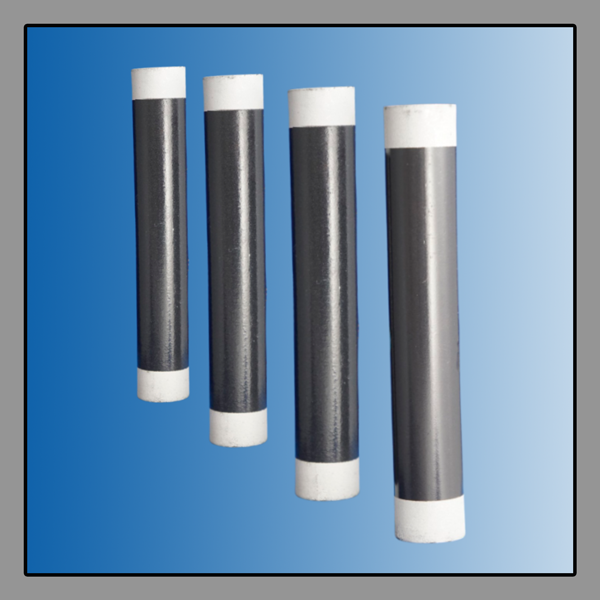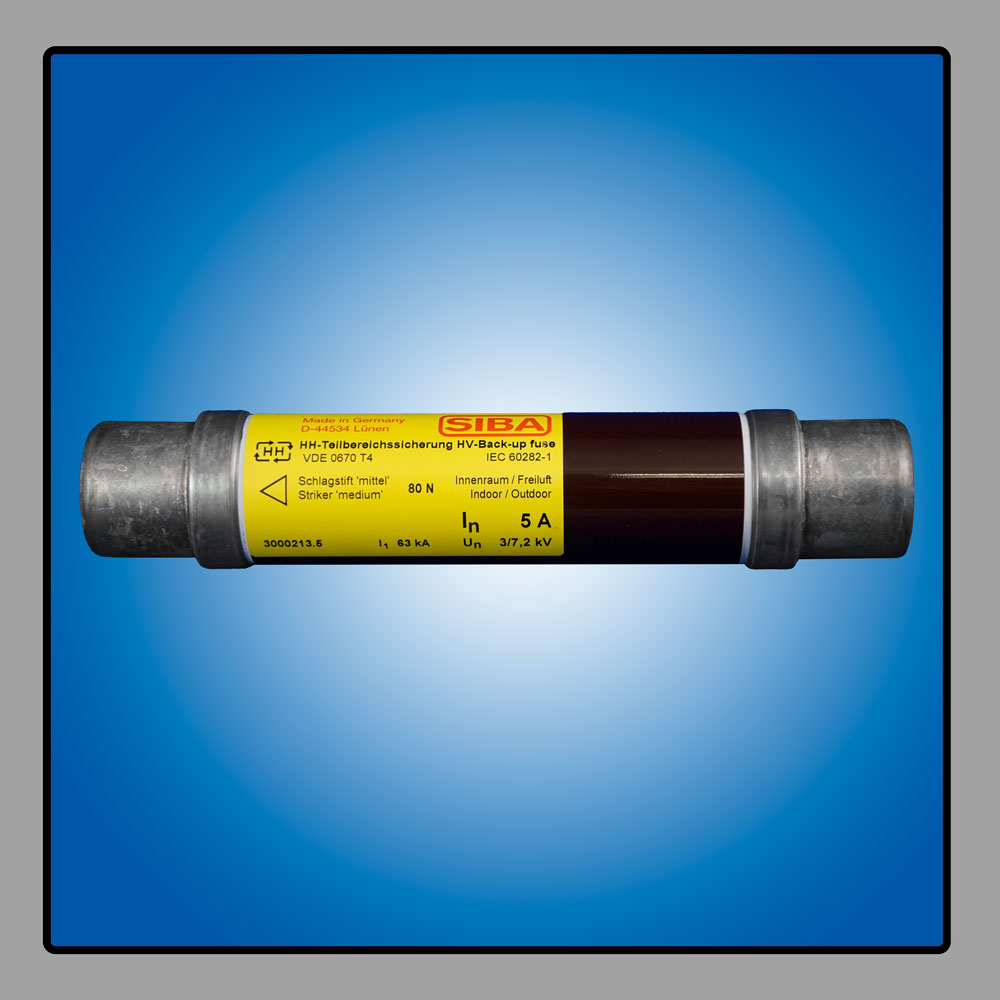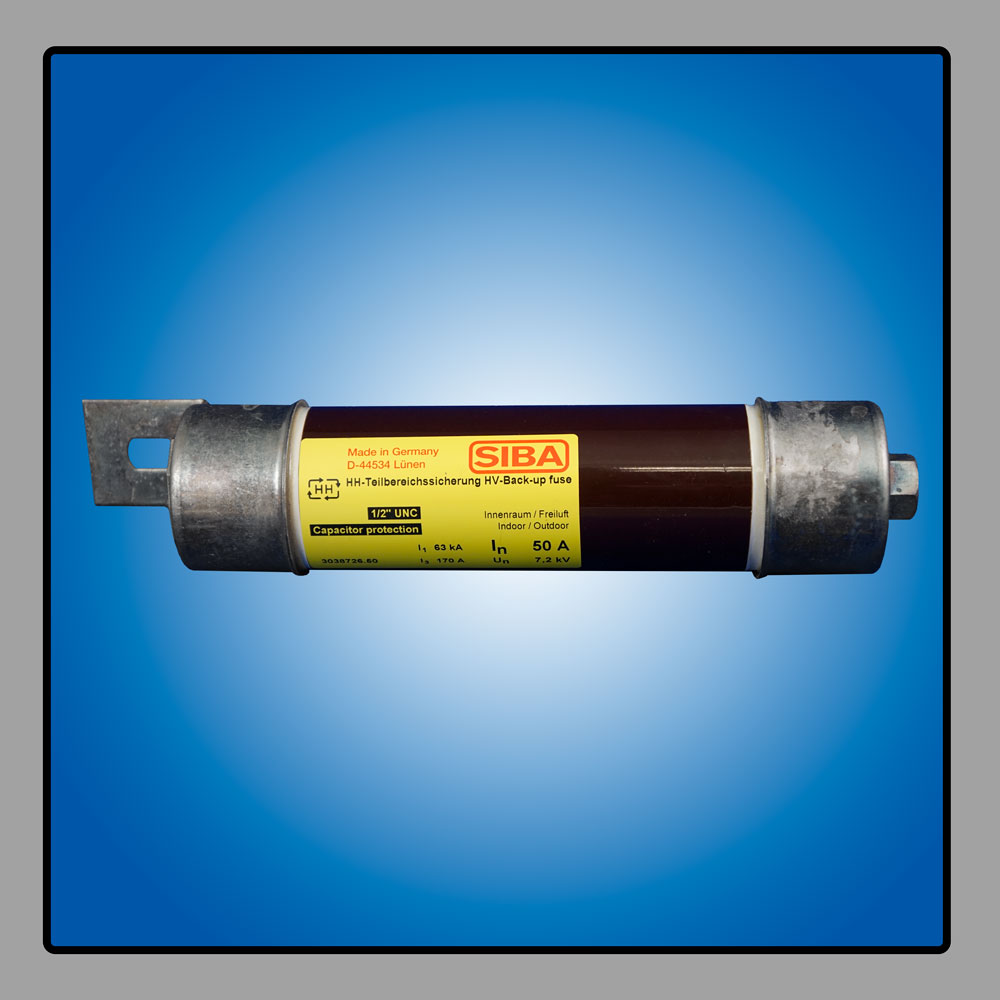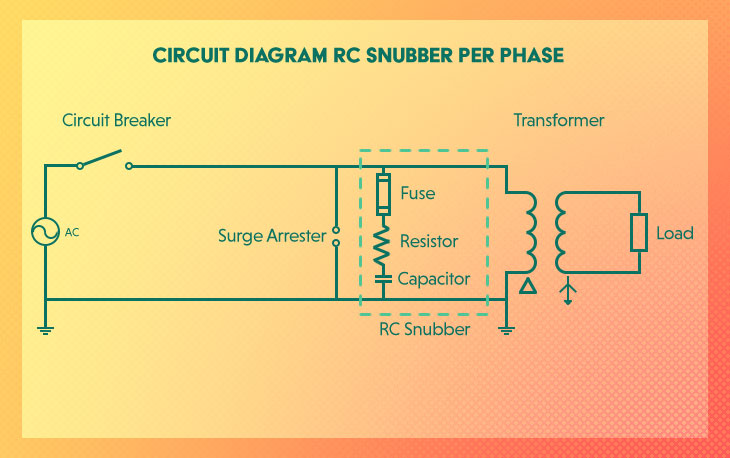
Resistor-Capacitor (RC) transformer protection snubber circuits safeguard medium voltage distribution transformers against transient overvoltages, which minimizes failures. RC snubber circuits are crucial for the protection of dry-type distribution transformers, especially when close-coupled to vacuum switching devices.
These RC networks, consisting of RC configurations, are installed on the high voltage windings of transformers to mitigate transient overvoltages and dv/dt events. They are primarily employed in three-phase distribution transformers.
Medium Voltage RC Snubbers counteract damage from events such as:
- Switching on an unloaded or lightly loaded transformer.
- Transient recovery voltages (TRV) during transformer de-energization.
- Current chopping (CC).
The snubber circuit comprises three fundamental medium voltage components per phase:
- Damping resistors
- Surge capacitors
- Fuses
Hill Tech can assist you with both your fuses and damping resistor requirements for RC snubber circuits.
RC Snubber Circuit Components from Hill Tech
DAMPING RESISTORS: These non-inductive tubular power resistors, constructed of either carbon ceramic or silicon glass, are inherently non-inductive and can handle large surge energies with high continuous power ratings. They feature an anti-track coating and sufficient length, making them suitable for medium voltage applications.
Depending on the surge energy and continuous power rating required by the resistor two different technologies should be considered either silicon glass resistor or carbon ceramic resistor type. Silicon-Glass Tube Resistors are rated up to 330kJ at 1000W and 30kV, whereas carbon ceramic tube resistors are rated up to 119kJ at 225W and 120kV. Contact Hill Tech with those requirements for the best technical solutions.
Various mounting end-caps and clips are available for mounting these resistors.
FUSES: Fuses play a crucial role in preventing the destruction of the snubber circuit. If the fuses fail to operate, the resistors effectively act as fuses, resulting in the loss of protection provided by the snubber circuit.
High-speed, current-limiting fuses, such as the new HHA-BC series, are specifically designed for optimal performance in capacitor circuits. They are suitable for indoor and outdoor usage in the North American market. The voltage rating of the HHA-BC capacitor fuse matches or exceeds the maximum open circuit voltage of the system, ensuring effective operation during fault conditions.
The HHA-BC capacitor fuse is available in various voltage ratings, including 4.8kV, 5.5kV, 7.2kV, 8.3kV, 15.5kV, and 23kV. We offer different mounting styles, such as threaded/tapped ends (1/2” UNC or M16) and L-Bracket configurations with a 50N striker. The fuses equipped with a 50N striker offer visual fault detection through a bright red-colored striker and can also activate a microswitch assembly for remote monitoring.
It’s worth noting that all new capacitor fuses equipped with 50N strikers feature a thermal limiter mechanism. This mechanism triggers the striker under overload conditions when the internal temperature of the fuse exceeds specified levels, enhancing safety and reliability.
Hill Tech is pleased to support your component needs for RC transformer protection snubber circuits.
If you would like to check out a variety of products that we handle that could suit your needs, please check out our website at https://hill-tech.com/, or contact us at 847-255-4400, fax us at (847) 255-0192, or email us at sales@hilltech.com.

